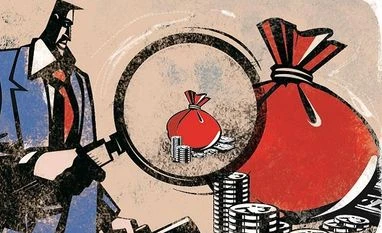The move to do away with retrospective taxation is aimed at instilling foreign investors' confidence in the Indian economy and to deliver "equity" of justice in tax matters, CBDT Chairman J B Mohapatra said on Thursday after the government brought a bill in Parliament to withdraw all back tax demands.
Calling it the "right time" to bury this law brought in 2012, Mohapatra said the government exchequer will have an outgo of over Rs 8,000 crore, majorly collected from Cairn Energy (about Rs 8,000 crore) and a "very little" amount of Rs 40 crore in another case, once the entities engaged under this provision come on board.
"It is the right time to remove the retrospectivity of legislation in section 9 and also in the validation clause of section 119 of the relevant Finance Act (of 2012). It was important to remove retrospectivity in law so that unnecessary litigation and costs and energies of the government are geared towards other things," the Central Board of Direct Taxes (CBDT) head told PTI.
"It is also to instill a sense of confidence in the foreign investors that Indian law respects equity in delivering of law and justice to all who come and make investment in India so that their investments are protected," he said.
The CBDT frames policy for the income tax department.
He added that the government brought the amendment in the Lok Sabha termed: 'The Taxation Laws (Amendment) Bill, 2021' to rule out any uncertainty in India's position over tax laws.
Also Read
"India at any point in time does not believe that the bilateral investment protection treaties can ever supersede the Income Tax Act and also the Indian law does not permit arbitration of tax disputes," he said.
"But to rule out any uncertainty of our position and to instill foreign investors confidence in the Indian economy....(the latest amendment was brought)," Mohapatra said.
The CBDT chief said retrospectivity in tax laws has always been there.
"When this amendment was brought in the Finance Act of 2012 it was felt at that point in time...the government always believed that indirect transfer of shares, where the embedded assets are located in India, is always taxable from the inception of the Income Tax Act. That was the thinking at that point of time," he said.
Mohapatra said the process of final settlement of retrospective taxation cases will take place as stated in the Bill.
"The important part is that there will be an undertaking from the counter-parties who are involved in litigation and have to give a unilateral undertaking that they will withdraw all appeals at all forums and that there will be no payment of interest," he said.
"This is the arrangement where the government gives retrospectivity a burial and we also expect the counter-party in the same spirit as declared in the amendment," he said.
Finance Minister Nirmala Sitharaman introduced the Bill in the Lok Sabha that seeks to withdraw tax demands made using a 2012 retrospective legislation on indirect transfer of Indian assets prior to May 28, 2012.
"It is also proposed to refund the amount paid in these cases without any interest thereon," the Bill said.
Besides creating uncertainly in minds of investors, the retrospective taxes have in recent months been overturned by international arbitration tribunals in two high profile cases -- UK telecom giant Vodafone Group and oil producer Cairn Energy.
Sitharaman's bill stated that income tax demand had been raised in 17 cases and the retro tax was criticised for being against the principle of tax certainty and damaged India's reputation as an attractive destination. It was a sore point for potential investors.
(Only the headline and picture of this report may have been reworked by the Business Standard staff; the rest of the content is auto-generated from a syndicated feed.)
)